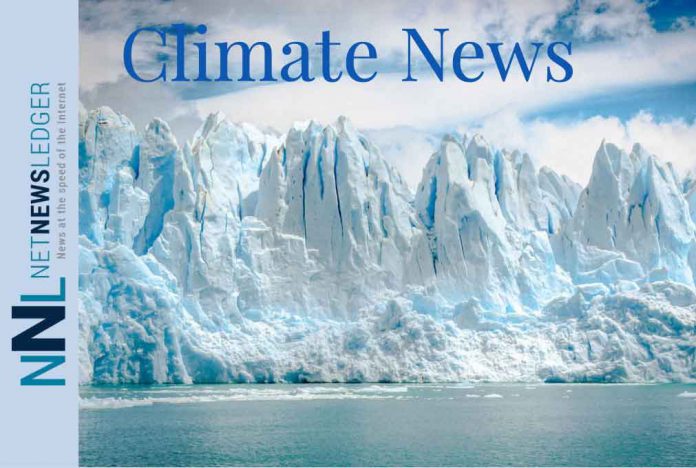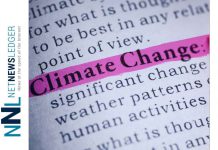A major report on biodiversity has warned that accelerating species decline threatens a crisis for humans – here’s how experts are responding
BARCELONA (Thomson Reuters Foundation) – A flagship report on the state of nature, backed by about 130 countries, warned on Monday that the rate of extinctions of plant and animal species was accelerating and would likely cause serious damage to human wellbeing around the world.
On average, the abundance of native species in most major land-based habitats had fallen by at least a fifth, mostly since 1900 and mainly because of human activities, it said.
More than 40 percent of amphibian species, almost a third of reef-forming corals, and more than a third of marine mammals are threatened with extinction, it added.
The five root causes with the biggest global impacts were, in descending order, changes in land and sea use, direct exploitation of organisms, climate change, pollution and invasive alien species, the report said.
It called for a huge shift in how the global economy is run, to put it on a more sustainable path that could stop and even reverse the damage being done to the fabric of life on Earth.
Here are some quotes from scientists, environmental officials, and campaigners on climate change and indigenous people’s rights:
ROBERT WATSON, CHAIR, INTERGOVERNMENTAL SCIENCE-POLICY PLATFORM ON BIODIVERSITY AND ECOSYSTEM SERVICES (IPBES)
“The health of ecosystems on which we and all other species depend is deteriorating more rapidly than ever. We are eroding the very foundations of our economies, livelihoods, food security, health and quality of life worldwide.
“The report also tells us that it is not too late to make a difference, but only if we start now at every level from local to global. Through ‘transformative change’, nature can still be conserved, restored and used sustainably – this is also key to meeting most other global goals.”
SANDRA DÍAZ, CO-CHAIR, IPBES GLOBAL ASSESSMENT REPORT
“Biodiversity and nature’s contributions to people are our common heritage and humanity’s most important life-supporting ‘safety net’. But our safety net is stretched almost to the breaking point… The diversity within species, between species and of ecosystems, as well as many fundamental contributions we derive from nature, are declining fast, although we still have the means to ensure a sustainable future for people and the planet.”
NAOKO ISHII, CEO, GLOBAL ENVIRONMENT FACILITY
“There is still time to reverse this decline. But to do that, we must radically change the way we live, including how we use energy to power our societies, grow our food, and manage our waste. We need a new way of doing business. We must build new coalitions and partnerships to transform the key economic systems that support how we eat, how we move and how we produce and consume.”
ANDREW NORTON, DIRECTOR, INTERNATIONAL INSTITUTE FOR ENVIRONMENT AND DEVELOPMENT
“Poverty goes hand-in-hand with precarious lives that are extremely vulnerable to ecological collapse. It is crucial the progress that has been made in development is not undone by the interconnected crises of biodiversity loss and climate change. The contribution that diverse nature and natural ecological systems make to development ― for both rich and poor ― needs to be included in the economic decisions made by governments and business. Without this, development and life, in general, cannot be sustainable.”
VICTORIA TAULI-CORPUZ, U.N. SPECIAL RAPPORTEUR ON THE RIGHTS OF INDIGENOUS PEOPLES
“It’s no mystery why indigenous groups are so adept at protecting biodiversity. For generations, we have accumulated intimate and detailed knowledge of the specific ecosystems where we live. We know every aspect of the plant and animal life, from mountain tops to ocean floors. This consistent, all-encompassing approach to biodiversity protection is the reason why indigenous peoples live in areas with the richest biodiversity and least damaged ecosystems.”
LAKPA NURI SHERPA, ASIA INDIGENOUS PEOPLES PACT
“Indigenous understanding encompasses practice, knowledge, spirituality and deep relationships with ancestral lands and sacred places, and it is good to see that this has now been recognized and included in this global assessment… Indigenous peoples don’t see nature as separate from people.”
HODA BARAKA, GLOBAL COMMUNICATIONS DIRECTOR FOR CLIMATE CAMPAIGN GROUP 350.ORG
“The way we farm, use our soils, protect coastal ecosystems and maintain our forests will make or break our future but it can also help us eat better, live longer and have more choice. There is no single solution to this crisis. But in the next two years, we have a unique opportunity to jumpstart the solutions together and make collective choices about how we feed ourselves, protect nature and avoid climate chaos.”
CHRISTOPH THIES, GREENPEACE GERMANY FORESTS AND CLIMATE CAMPAIGNER
“This is a devastating reality check. Governments must start putting people and planet ahead of corporate interests and greed and act with the urgency this report demands. Leaders must adopt strong targets and implementation plans to protect biodiversity with the participation and consent of Indigenous Peoples and local communities at the global nature summit in China next year (COP15). Profiteering has pushed nature to the brink, placing our own survival in peril due to overexploitation of the natural world and worsening climate change.”
LOUISA CASSON, GREENPEACE’S PROTECT THE OCEANS CAMPAIGN
“The report confirms that the existing mechanisms to protect our oceans are not working. Today, only 1 percent of the global seas are protected and there is no legal instrument that allows the creation of sanctuaries on international waters. We need a Global Ocean Treaty to protect at least 30 percent of our global oceans by 2030.”
(Reporting by Megan Rowling @meganrowling; editing by Jason Fields. Please credit the Thomson Reuters Foundation







